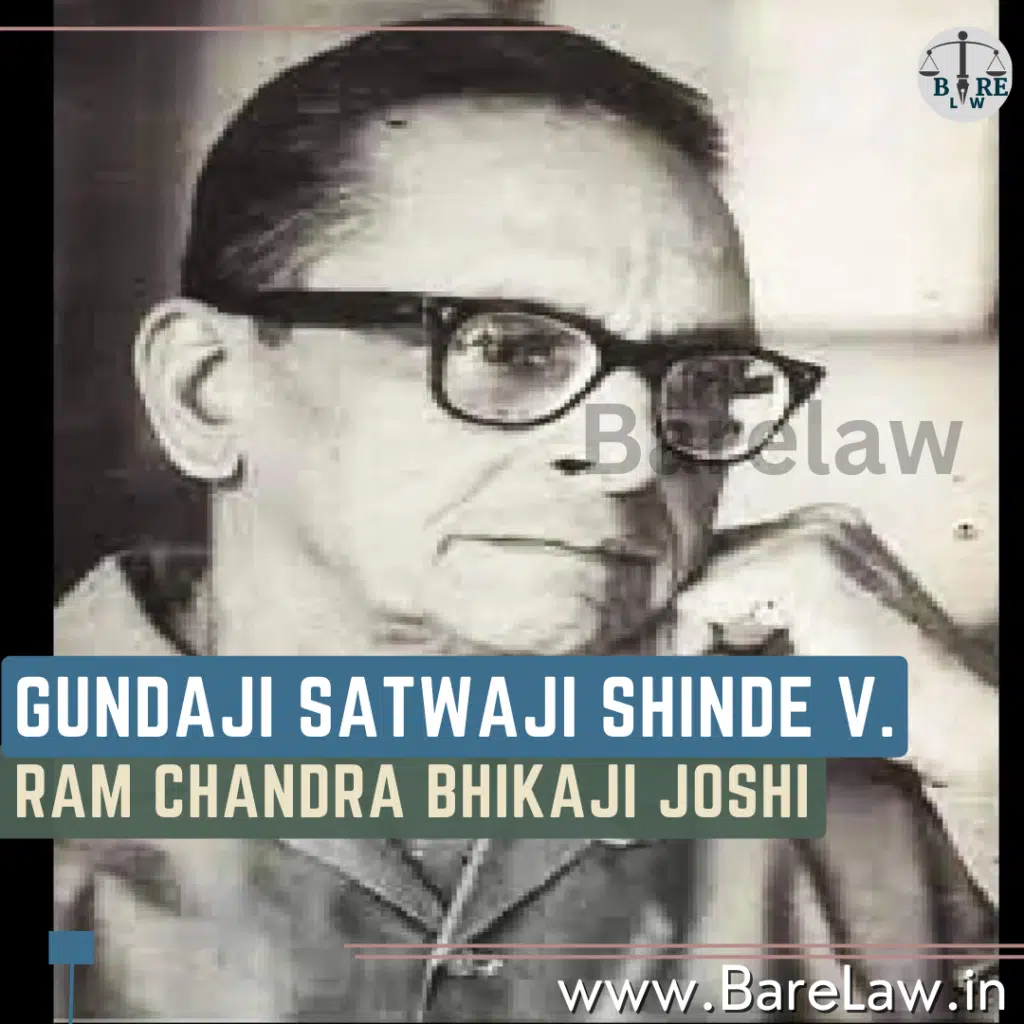
Unraveling the Legal Maze: Gundaji Satwaji Shinde v. Ram Chandra Bhikaji Joshi, AIR 1979 SC 653″ | BareLaw
Unraveling the Legal Maze: Gundaji Satwaji Shinde v. Ram Chandra Bhikaji Joshi, AIR 1979 SC 653″ | BareLaw
Introduction
The judgment of Gundaji Satwaji Shinde v. Ram Chandra Bhikaji Joshi, AIR 1979 SC 653 is a leading case in Indian legal jurisprudence. This case is about the jurisdiction of civil courts where particular statutes provide for an alternative competent authority. The Supreme Court’s interpretation here gives a good understanding of these aspects like general law and special law, especially in relation to it and the Bombay Tenancy and Agricultural Lands Act, 1948 (Tenancy Act) & Code of Civil Procedure, 1908 (CPC).
Background
Gundaji agreed to purchase land from Ramchandra who later refused to perform the agreement thus causing Gundaji to apply specific performance before civil court. Defendant resisted the suit asserting that Gundaji was not defined under the Tenancy Act as an agriculturist, hence could not legally acquire such land. Also it was contended that only Mamlatdar court as indicated in Tenancy act was capable of deciding whether or not Gundaji was an agriculturist consequently excluding jurisdiction for civil court.
Legal Issues
The main issue revolved around whether or not civil court had jurisdiction to decide plaintiff’s status as an agriculturist under Section 9 CPC in view of Sections 85 and 85A of Tenancy Act.
Court’s Analysis
The Supreme Court, in its analysis, highlighted two key aspects:
- Jurisdiction of Civil Courts: It observed that a suit for specific performance may be entertained by the civil court. Nevertheless if such issues arise which are required by the competent authority under tenancy act then their jurisdiction would stop on this count. They were therefore expected to refer such matters to the appropriate body – Mamlatdar.
- Exclusive Jurisdiction of Mamlatdar: In explaining what had been intended by legislation, the Court noted that Civil Court’s jurisdiction had specifically been removed regarding any matter which could only be resolved by authorities under the same Act. When, as here, an issue such as whether a person is an agriculturist arose in a suit at law it was exclusively within the jurisdiction of the Mamlatdar to determine. Such issues had, therefore, to be referred by civil court to mamlatdar who would state its finding.
High Court’s Ruling and Supreme Court’s Overruling
The High Court held that civil court has jurisdiction over this matter. But Supreme Court overruled this decision saying that all matters which come only before the Mamlatdar must eventually be referred to him even if they arise incidentally in a civil suit.
Implications
This decision proved that civil courts are not endowed with absolute jurisdictions but can be limited in line with specific statutory provisions. It also reaffirms need for respect of legislative scheme providing for specialized adjudicatory mechanisms for particular matters.
Conclusion
Gundaji Satwaji Shinde v. Ram Chandra Bhikaji Joshi is a milestone case in Indian legal history that established a precedent on how conflicts between jurisdiction of different kinds of courts can be resolved. This case acts as an index pointing out various aspects related to interpretation of statutes and delimitation of jurisdictions within India’s legal system.



